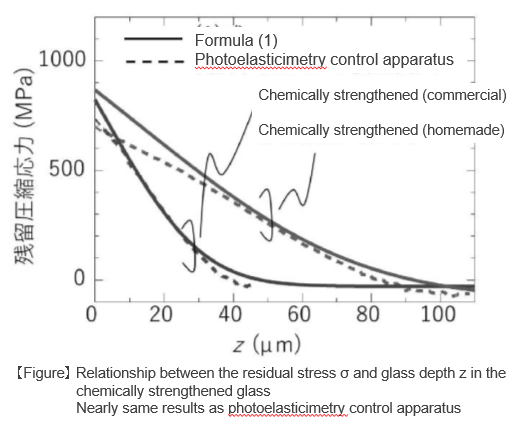Residual stress evaluation method for chemically strengthened glass
Non-contact, non-destructive and position-selective residual stress evaluation using volume variation obtained by microscopic Raman scattering spectrum
Overview
Chemically strengthened glass has become very popular as the cover glass for smartphones. This glass is made by immersing the glass in the potassium nitrate melt and exchanging ions between the sodium ions in the glass and the potassium ions in the potassium nitrate melt. Conventional methods to evaluate the chemically strengthened glass strength are the bending method and the optical waveguide method. However, these methods are not suitable for measuring locally the residual stress, and there is a limit in the glass samples that can be measured.
This invention is able to evaluate the residual stresses of the chemically strengthened glass in a non-contact, non-destructive and position-selective manner. In this invention, the residual stress is calculated from the volume variation ratio which increases with ion exchange, obtained by the microscopic Raman scattering spectrum.

Effect・Application
<Effect>
Evaluation of the residual stress of the chemically strengthened glass in a non-contact, non-destructive and position-selective manner
< Application >
Development of unbreakable glass
Glass quality control
IP Data
IP No. : JP2020-139940
Inventor : TERAKADO Nobuaki, FUJIWARA Takumi,TAKAHASHI Yoshihiro, SASAKI Ryusei
keyword : residualstressevaluation, chemicallystrengthenedglass, Ramanscatteringspectrum
